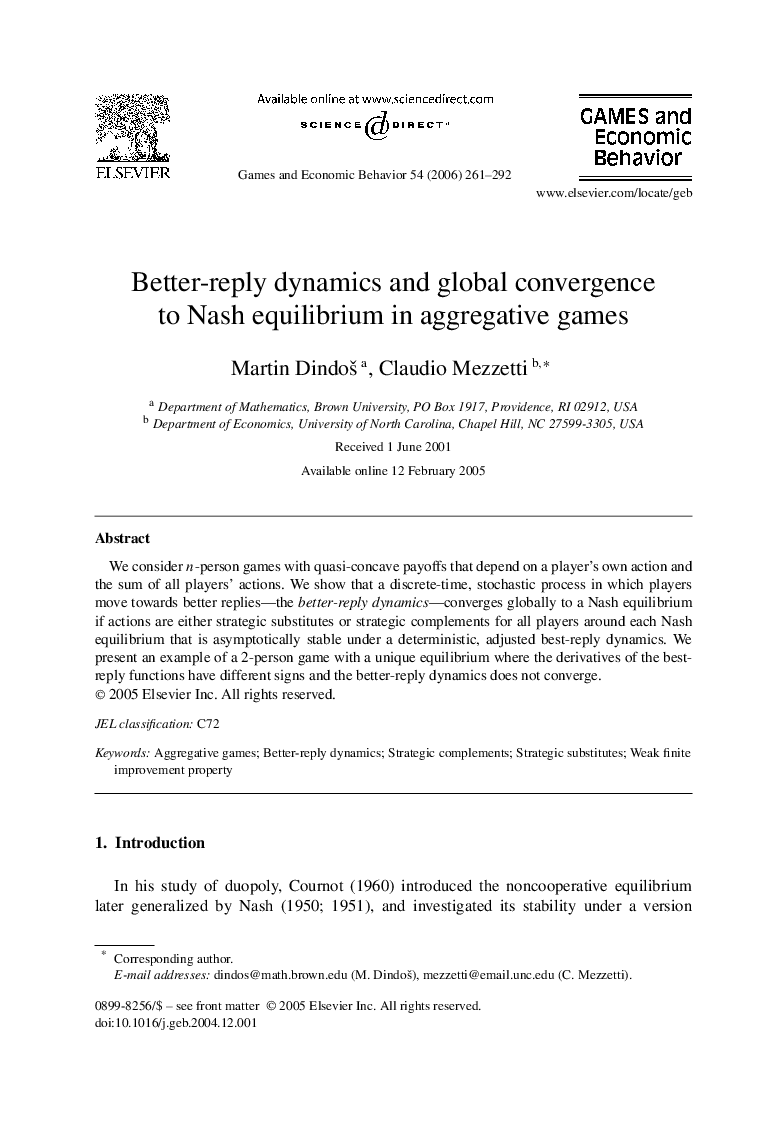| Article ID | Journal | Published Year | Pages | File Type |
|---|---|---|---|---|
| 5073027 | Games and Economic Behavior | 2006 | 32 Pages |
Abstract
We consider n-person games with quasi-concave payoffs that depend on a player's own action and the sum of all players' actions. We show that a discrete-time, stochastic process in which players move towards better replies-the better-reply dynamics-converges globally to a Nash equilibrium if actions are either strategic substitutes or strategic complements for all players around each Nash equilibrium that is asymptotically stable under a deterministic, adjusted best-reply dynamics. We present an example of a 2-person game with a unique equilibrium where the derivatives of the best-reply functions have different signs and the better-reply dynamics does not converge.
Related Topics
Social Sciences and Humanities
Economics, Econometrics and Finance
Economics and Econometrics
Authors
Martin Dindoš, Claudio Mezzetti,
